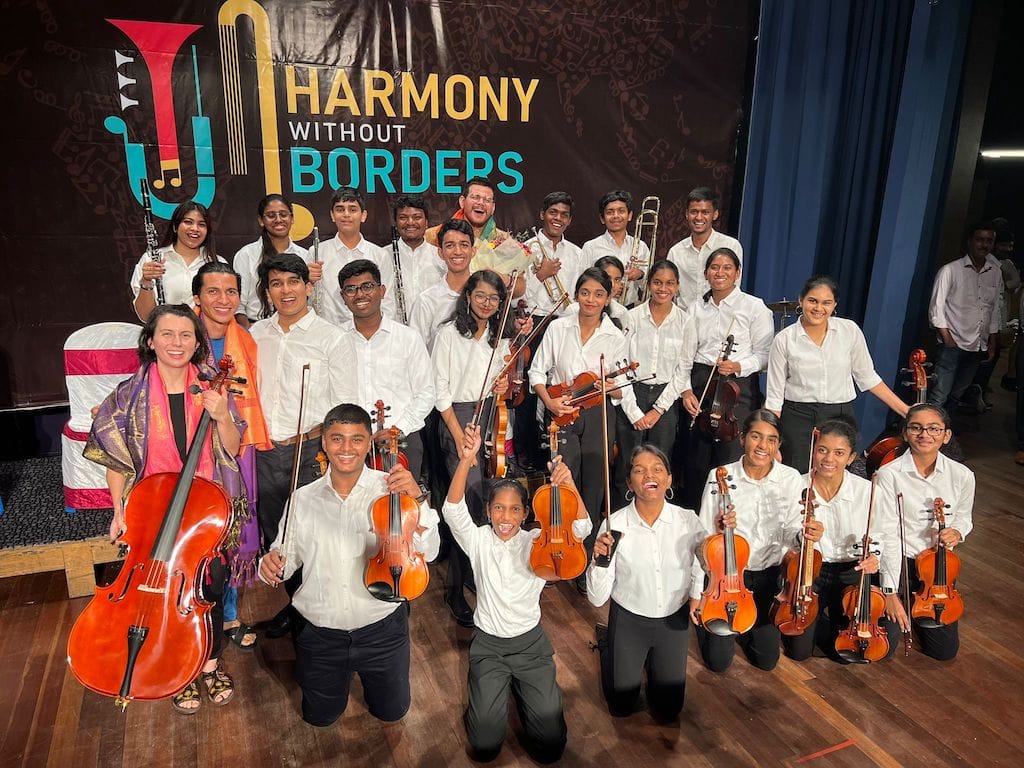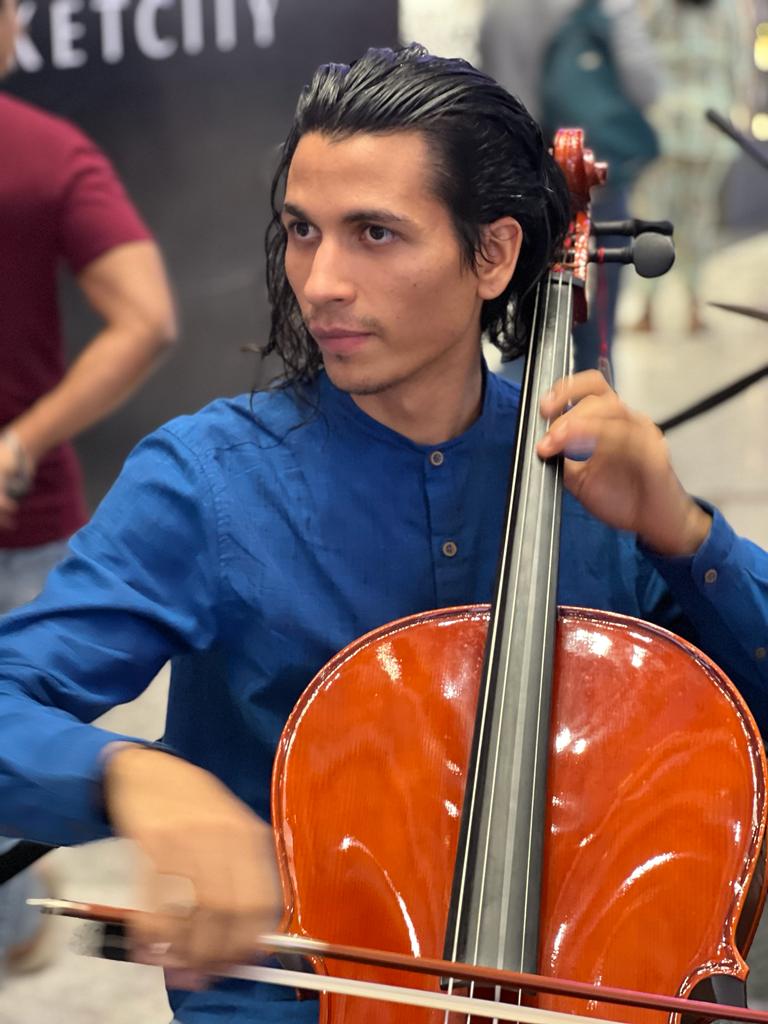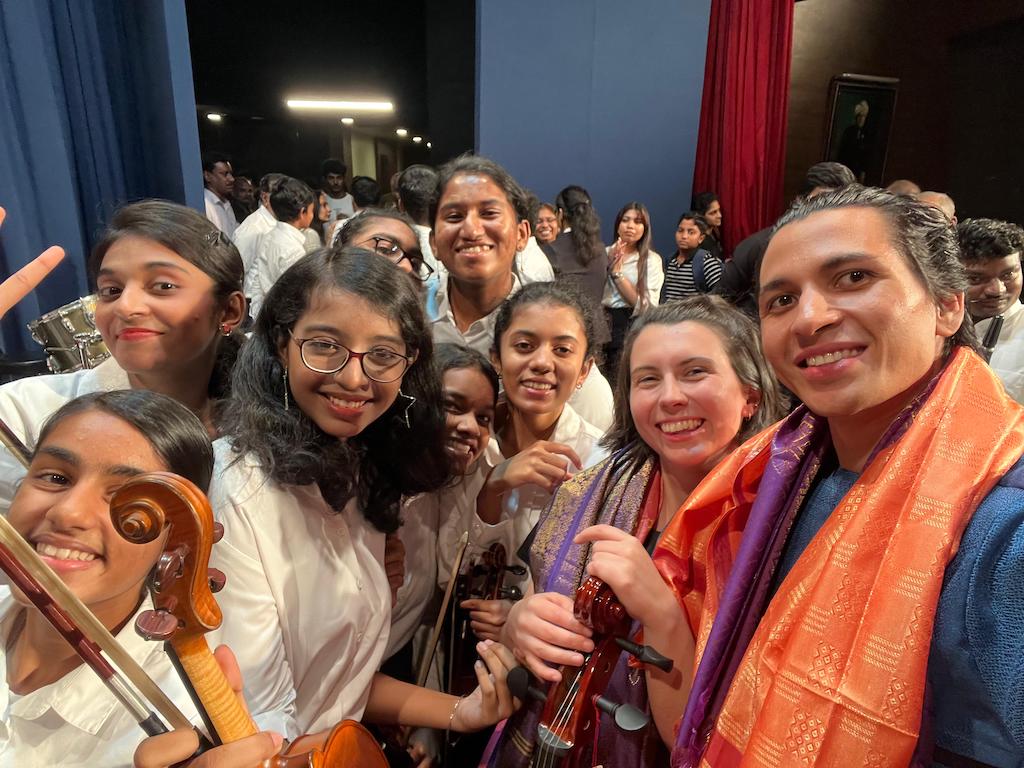Chennai Youth Sinfonietta Teachers: Efrén Ruiz, Strings

Meet Efrén Ruiz, a vibrant 29-year-old Venezuelan cellist, composer, and social media content creator who seamlessly intertwines music and values education across generations. With a rich background spanning two decades of training, including experiences with renowned programs like “El Sistema” and “UCLA: Barquisimeto,” Efrén collaborates with luminaries such as Sir Simon Rattle and Gustavo Dudamel. Post-COVID-19, he emphasizes the importance of human connection in music education, actively contributing to initiatives like Kinder Paradise in Ghana and partnering with Keys of Change. Through his project “Cello Motive,” Efrén offers a contemporary perspective on academic, popular, and folk music genres, striving for excellence and modernity in his teaching. His multifaceted approach reflects a deep commitment to innovative and impactful global music education.

Serenade Team: Can you share your musical background and how it aligns with the mission of fostering musical talent in diverse communities? What philosophies or principles guide your approach to teaching music, especially within a diverse and inclusive environment like Chennai Youth Sinfonietta?
Efrén Ruiz: I trained in “El Sistema Venezuela,” an integral music program for children from various backgrounds, where I honed my skills as a professional musician and now as a teacher. El Sistema emphasizes integrating diverse communities into the art of music for the benefit of all. Over the years, I’ve drawn inspiration from my teachers and favourite classical artists, aspiring to become an inspiration to future generations. Being part of “Keys of Change,” a foundation enabling people like me and my colleagues to share our expertise with talented children and youth worldwide, is a true honour. We’re delighted to have met the remarkable musicians of the Chennai Youth Sinfonietta. Their talent and unity as a group have left a lasting impression on us.
ST: Could you describe a specific instance or project where your teaching had a transformative impact on young musicians or a community? How do you envision contributing to the goals of Chennai Youth Sinfonietta in terms of fostering community engagement and musical excellence simultaneously?
ER: Currently, I’m working as a music volunteer at “Kinder Paradise Ghana” in collaboration with “Keys of Change.” Here, music serves as therapy for children and youth rescued from risky situations. Providing these young individuals with free, high-quality music education and access to classical instruments in Ghana, Africa, will undoubtedly change their lives. Their love and joy are incomparable, and I believe Chennai has the potential to become a hub for the classical music movement. With the right support and teamwork, the project can set a pioneering example for the country.
ST: What teaching methodologies or techniques do you find most effective in nurturing young musical talent, considering the diverse backgrounds of the students? How do you plan to integrate your diverse experiences into the educational framework of Chennai Youth Sinfonietta?
ER: In my experience, every child and teen is unique, so there’s no one-size-fits-all methodology. It’s essential to be patient, build trust, and form a genuine bond with each student. Understanding their individual needs, both technically and personally, is key. My goal is to ensure every orchestra member feels valued and capable of achieving excellence.

ST: Given the emphasis on collaboration and mentorship, could you discuss your approach to collaborating with other faculty members and mentoring young musicians? How do you perceive the role of mentorship in shaping the next generation of musicians, and how would you contribute to this at CYS?
ER: Mentorship is about equipping pupils to become the next generation of mentors by providing them with the necessary tools for success. Witnessing the talent, discipline, and commitment of young musicians inspires me to seek new ways to support their development. I believe mentorship plays a crucial role in shaping the future of the classical music industry, and I’m committed to contributing to this at CYS.
ST: How do you believe music education contributes to societal change, especially in promoting inclusivity and harmony, and how can CYS further this impact? Can you share any initiatives or experiences where music education was used as a tool for positive social change, aligning with the vision of CYS?
ER: Music education, as exemplified by “El Sistema,” has had a significant impact on societies worldwide by promoting inclusivity and collaboration across diverse backgrounds. I believe CYS has the potential to emulate this success in Chennai by inviting members from all backgrounds to participate and grow the project. Music has the power to transform lives, and it’s why I’m passionate about what I do.





